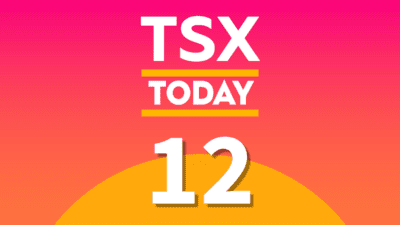There are many great passive-income options for Canadian investors these days. With volatility striking certain market sectors, it may be a smart idea to take a step back and consider the relatively resistant names. Indeed, they may not possess the most upside in the event that the hardest-hit names begin bouncing higher, but, at the very least, investors can sleep comfortably at night without having to worry about plunging Nasdaq futures, wondering what further damage to their holdings they’ll have to endure the next day.
Undoubtedly, if you’re in distress every time the Nasdaq stands to fall by a greater amount (Cathie Wood’s ARK Invest names seem to fall by some amplified amount), you may be overextending yourself on the risk front. Indeed, many beginner investors are guilty of this, especially younger investors who know they have time on their side.
Income ETFs shaping up to do well for Canadian investors in 2022
In this piece, we’ll have a look at two income ETFs that could help your portfolio make it through what’s shaping up to be a vicious, potentially down year for broader markets. In such an environment where the markets are being dragged down by just a few culprits (a small segment of the tech sector), you should insist on both a margin of safety and a well-supported dividend. At the end of the day, passive-income payments are yours to keep, regardless of which direction a stock or ETF moves.
Consider BMO Covered Call Canadian Utility ETF (TSX:ZWU) and BMO Canadian Dividend ETF (TSX:ZDV), two very different ways to make it through a turbulent 2022.
BMO Covered Call Canadian Utility ETF
First up, the ZWU is the more defensive of the two ETFs in this piece. It’s not only the utility stocks that make the ZWU a compelling pick for investors who want to hide from volatility while getting paid up a fat distribution for doing so; it’s also the covered-call aspect of the utility. Indeed, the ZWU takes its defence a step further with the writing of covered calls. The result? A slightly higher yield than the ETF but at the cost of some upside potential.
Undoubtedly, the ZWU is among one of the most defensive equity ETFs out there. And when the tides get choppy, the ETF can pay off, as you collect your distribution and take a more dampened hit if markets end up being dragged lower for a prolonged period.
The covered-call line of ETFs seems like a safe haven. But it’s no magic formula for outperformance. You see, the TSX Index could continue surging higher, especially if investors shrug off rate hikes and economic growth continues flexing its muscles. With the utilities, though, rising interest rates aren’t great news, since it increases borrowing costs on rather pricey utility projects. With a recent run-up in select utility stocks, there may very well be limited upside. And if that’s the case, the ZWU is the way to go, especially if you’re an investor who wants a bit more certainty in the form of a fatter yield in this time of profound uncertainty.
BMO Canadian Dividend ETF
The ZDV may be a better pick for investors who don’t want to play 2022 too safely. A covered-call strategy tends to cost investors more in the form of a fatter MER. And when markets continue marching higher, owners of such covered call ETFs will be in a spot to underperform. Unlike the ZWU, the ZDV is a more diversified mix of quality Canadian dividend stocks that will be subject to more significant capital gains if the market’s bull run is far from over.
For younger investors, the ZDV looks to be the better pick. But if your portfolio is overweight risk, the ZWU is also worth considering. Do check out BMO’s line of income ETFs before you think about punching your ticket, though!







